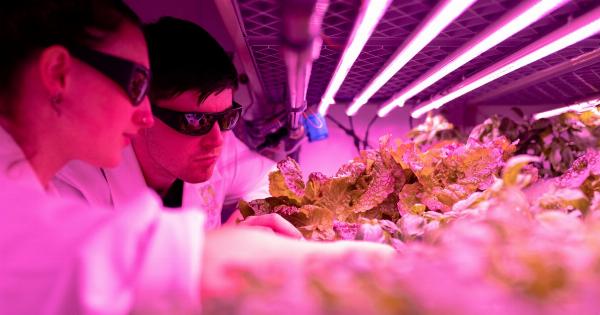Tuberculosis (TB) is caused by a bacterium called Mycobacterium tuberculosis. It’s spread when infected people cough or sneeze droplets into the air, and other people inhale those droplets.
While TB can be prevented and treated, it remains a major public health problem worldwide. According to the World Health Organization, TB is the leading infectious cause of death globally, killing an estimated 1.5 million people in 2020.
However, there might be a new cure for TB on the horizon – vinegar. A recent study published in Scientific Reports suggests that acetic acid, the main component of vinegar, might be an effective treatment for TB.
What is TB?
TB most commonly affects the lungs, but it can also affect other parts of the body such as the brain, kidneys, and spine. It’s a highly contagious disease that spreads through the air, and it can be fatal if left untreated.
Symptoms of TB can include coughing that lasts for three weeks or more, chest pain, coughing up blood or sputum, fatigue, weight loss, fever, and night sweats.
There are two types of TB: latent and active. Latent TB means that a person has the TB bacteria in their body, but they don’t have any symptoms and can’t spread the disease.
Active TB means that a person has the TB bacteria and is showing symptoms, and they can spread the disease to others.
Current treatments for TB
The current treatments for TB involve a combination of antibiotics. The antibiotics must be taken for at least six months to fully treat the disease and prevent it from returning.
Treatment can be complicated by drug resistance – when TB bacteria become resistant to one or more of the antibiotics used to treat the disease.
How vinegar can help
Acetic acid, the main component of vinegar, has been shown in previous studies to have antimicrobial properties. The researchers behind the recent study wanted to see if acetic acid could be used to treat TB.
The researchers performed in vitro experiments to test the effects of acetic acid on Mycobacterium tuberculosis. The results showed that acetic acid was able to kill the TB bacteria.
The researchers then tested acetic acid on animals. They infected guinea pigs with TB and treated them with acetic acid. The results showed that the acetic acid was able to significantly reduce the bacterial load in the lungs of the infected guinea pigs.
What the study means for TB treatment
The study is still in its early stages, and more research is needed before it can be determined if acetic acid can be used to treat TB in humans. However, the results are promising and suggest that vinegar could be a potential new treatment for TB.
If vinegar does prove to be an effective treatment for TB, it could be a game-changer for people who live in developing countries where access to antibiotics is limited.
Vinegar is inexpensive and widely available, making it an accessible treatment option for people who might not have access to more traditional treatments.
Conclusion
TB is a major global health problem, but a recent study suggests that vinegar could be a potential new treatment for the disease.
While more research is needed, the results are promising and suggest that vinegar could be an accessible and low-cost treatment option for people who might not have access to traditional treatments.




























